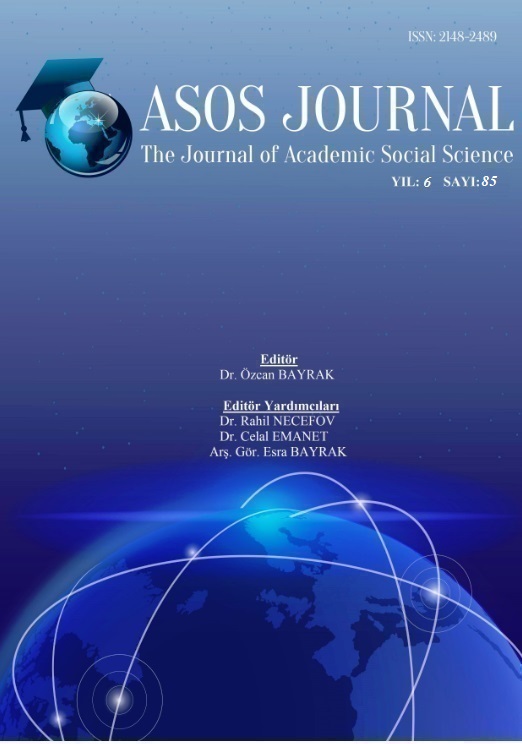Author :
Abstract
Bu araştırmanın amacı, Orff yaklaşımı destekli elementer müzik uygulamalarında, 5-6 yaş arası okul öncesi çocuklar için iletişim becerileri bağlamında fark yaratıp yaratmadığının ortaya konulmasıdır. Amaca uygun olarak çalışmada, ön test-son test tek gruplu zayıf deneysel araştırma deseni kullanılmıştır. Orff yaklaşım destekli müzik uygulamaları almamış 14 adet çocuk üzerinde yapılan araştırma, 6 haftalık bir süreçte, haftada üçer kez, kırk beş dakika uygulama yapılarak tamamlanmıştır. Yapılan etkinlik uygulamaları sırasıyla; Çocukları tanıştırma, dans et alkışla, Ali babanın bir çiftliği var, topları yana verme, body percussion, yılan dansı ve oyunu, ritimli ve marşlı yürüyüş, birlikte enstrüman çalma olarak belirlenmiştir. Deney gurubunun ön test ve son teste ait olan ve 4 alt ölçekten alınan puan ortalamaların karşılaştırılması için Wilcoxon İşaretli Sıralar Testi uygulanmıştır. Araştırma bulguları, elementer müzik uygulamalarında Orff yaklaşımın 5-6 yaş çocukların iletişim becerileri bağlamında olumlu yönde anlamlı fark oluşturduğunu ortaya koymaktadır.
Keywords
Abstract
The purpose of this research is to put forward whether the elementary music applications focused on the Orff approach has made a difference in terms of communication skills of pre-school children between the ages of 5 and 6 years. In accordance with the purpose a pre-test and post-test one-group weak experimental research modal was used. The research has been completed by applying three times a week for forty-five minutes in a 6-week period on 14 children who have not received Orff approached music education before. The activities performed are sequenced in 8 units; Introducing the children, Dance and applause, Ali father has a farm, Game of passing a ball to one side, Body percussion, Snake dance and game, Rhythmic and military walk and Playing instruments together. Wilcoxon Signed Rank Test was applied to compare the mean scores of 4 subscales belonging to the pre-test and post-test groups of the experiment. Significant differences were found between the pre-test and post-test scores of the children. As a result, it was determined that the Orff approach in elementary music education produced a meaningful difference in terms of communication skills between 5-6 years old children.





